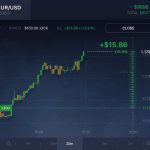The Return of Unregulated Binary Options Brokers
Regulation versus the free market – an eternal fight between cat and mouse with no clear winner and many unexpected twists and turns. One way or another, this is a brief description of pretty much any industry since the birth of laws and regulations centuries ago.
When it comes to the financial services industry, regulators are always claiming to be protecting the interests of clients, but many times they are merely protecting the interests of different lobby groups. Other times their actions are inadvertently creating loopholes and new structural problems for the financial markets.
From the looks of the developments in the binary options industry since the start of the year, the latest batch of harsh regulatory decisions are unlikely to really benefit the end clients of these services.
While the Cyprus Securities and Exchange Commission (CySEC) has decided to rein in some questionable advertising and sales practices of binary options brands, the French Autorite des Marches Financiers (AMF) is looking towards parliament for a ban on any form of digital advertising of binary options and forex products.
The tiny country of Belgium has followed through with an outright ban of leveraged trading products from the Belgian market, a move from which clients of the online trading industry could probably suffer the most. But why?
The Return of Unregulated Binary Options Brokers
While European financial services authorities have been tackling practices which they deem unfair in different ways, one part of the binary options industry is shifting into a new modus operandi which has until recently been dismissed by many. While some companies have been actively shelving expansion plans and others have been cutting costs, a new wave of unregulated brokerages is coming under the spotlight.
With dubious claims of regulation when none is provided and aggressive designs resembling casino houses, the industry is evolving into a new direction, which is really a not very long forgotten old one. The binary options industry has started as an unregulated product which has been asserted by its marketers as an “investment”.
The recent regulatory crackdown on marketing messaging and bonus promotions has effectively shelved a business model which was relying on the assumption that traders can be attracted via big bonuses and promises of ‘investment opportunities’.
Binary options affiliates which have been interviewed by Finance Magnates share that they are being flooded by a new generation of brokerages that have chosen the ‘Wild West’ to get regulated.
French Advertisement and Belgian Leverage Trading Bans
I would doubt that there are many people from this industry that have not been cold called at least once. Regardless of whether we are talking about an aggressive forex trading company or an opportunistic binary options sales agent – most of us have heard the words: “I would like to tell you about a great investment opportunity.”
While many of these calls might have been from regulated firms, this should now be a thing of the past or at least have changed dramatically. CySEC has been actively pressured by the European Securities Markets Authority (ESMA) into becoming tougher on the firms which it is supervising. What the regulators might have miscalculated though is what the prospective consequences for the industry would be.
While the French regulatory agency is looking at a digital advertisement ban to work in favor of clients, it may have the opposite effect. It is unclear how unregulated brokers will be prevented from contacting clients.
Shift Offshore: Competitive Disadvantages for Regulated Brokers
The Marshall Islands, Belize, St Vincent and the Grenadines.. the number of offshore jurisdictions where new binary options brokers are looking to establish their operations are numerous. Most importantly however, the main damage will be focused on firms that continue to be regulated.
The reputational damage which some brands in the industry have accumulated is making the offshore relocation decision for them very easy. Others that are looking for ways to exit the market and even go public – such brands are most likely to stick to their regulated brands, but could in the end spin off sister companies that are operating from offshore zones.
The current competitive disadvantages for regulated brokers are numerous – they need to find a new business model, which excludes direct sales, the need to pay regulatory fees, the need to spend on compliance infrastructure – on all counts substantial resources which are needed to commit to an automated business model.
Advantages of Remaining a Regulated Brokerage
The main advantage of remaining a regulated entity is being able to legally operate in the European Union. With the Australian market being limited and ASIC actively discouraging the advertisement of its regulatory powers outside of Australia, no other jurisdiction except for the U.S. exchange-type regulation for binary options exists.
U.S. regulators have shown in the past their long arm in terms of finding and charging companies that have been previously operating illegally in the country. Numerous fines against regulated and unregulated brokerages have been issued with hefty consequences. The power of European authorities in this regard is not to be underestimated.
With some brokerages in the industry substantially restructuring their operations, the industry which has chosen to adhere to the existing regulatory framework has some tough decisions to make. Many brokerages and tech providers will have to shift their business models and look for additional ways to generate income.
On the other hand, the affiliate commissions in the industry might decline due to the decline in the number of regulated brokerages that are seeking clients via such acquisition channels. In both cases the advantages of going the regulated way are clear – adherence with the law. That said, authorities will have to come with new and innovative ways to tackle unregulated brands in order to protect the end clients.



